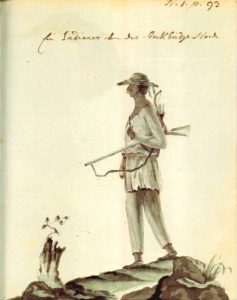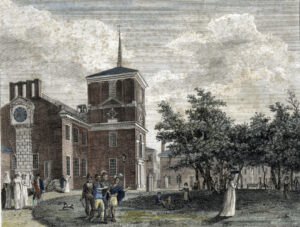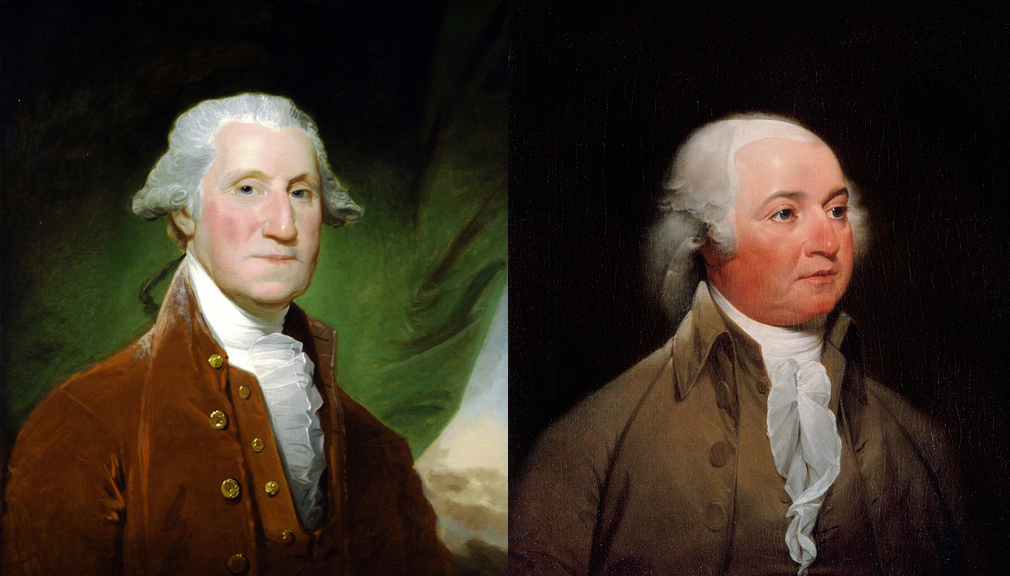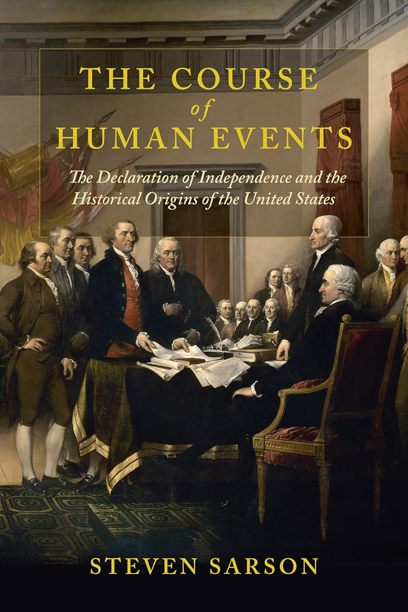Quotes about indigenous Native Americans are brimming with paradoxes. Benjamin Franklin praised their martial skills and the political structure of the Haudenosaunee Confederacy yet labeled them “ignorant savages.” John Adams chastised the French utilization of native warriors in the French and Indian Wars while Philip Schuyler wooed Oneida warriors with false promises of equality and protection of their lands. Thomas Jefferson admired the relative lack of crime in native communities compared to white society despite not having a highly regulated system of criminal justice. The Hessian Jӓger Capt. Johann Ewald acted as keen observer of natives he encountered and left detailed descriptions of their dress. George Washington expressed a heartfelt appreciation toward Oneida and Tuscarora contributions and sacrifices although the newly formed government denied them pensions. James Thacher found little redeeming qualities demonstrated by the Continental Army’s native allies and illustrated the racism that would guide American native policy. The Seneca Chief Chainbreaker (Tan Wr Nyrs) ruminated that the Onondaga Nation had been wrongly attacked by Continental Forces during the Sullivan Expedition.
The following quotes help to partially illustrate the tragic situation for Native Americans.
Benjamin Franklin to James Parker, March 20, 1751
Every Indian is a disciplin’d Soldier. Soldiers of this Kind are always wanted in the Colonies in an Indian War; for the European Military Discipline is of little Use in these Woods.[1]
Benjamin Franklin to James Parker, March 20, 1751
A voluntary Union entered into by the Colonies themselves, I think, would be preferable to one impos’d by Parliament; for it would be perhaps not much more difficult to procure, and more easy to alter and improve, as Circumstances should require, and Experience direct. It would be a very strange Thing, if six Nations of ignorant Savages should be capable of forming a Scheme for such an Union, and be able to execute it in such a Manner, as that it has subsisted Ages, and appears indissoluble; and yet that a like Union should be impracticable for ten or a Dozen English Colonies, to whom it is more necessary, and must be more advantageous; and who cannot be supposed to want an equal Understanding of their Interests.[2]
John Adams to James Warren, June 7, 1775
The Indians are known to conduct their Wars, So entirely without Faith and Humanity, that it would bring eternal Infamy on the Ministry throughout all Europe, if they should excite these Savages to War. The French disgraced themselves last War, by employing them. To let loose these blood Hounds to scalp Men, and to butcher Women and Children is horrid. Still it [is] Such Kind of Humanity and Policy as we have experienced, from the Ministry.[3]
General Philip Schuyler to Oneidas, March 1776,
Be assured that you will be a happy people whilst you remain in Love and Friendship with us and that I will do my utmost to make you love me as much as I do you.[4]
Samuel Kirkland to Philip Schuyler, March 12, 1776.
Mr. Deans has given your Honour, in his letter of yesterday, a general account of what has lately taken place here in a meeting with the Onondagas and Cayugas. The Oneidas, in this affair, manifested an unshaken friendship for the Colonies, and a firm attachment to the Council-fire at Albany. Many of the Indians have observed to me, that they never knew debates so warm, and contention so fierce, to have happened between these two brothers (the Oneidas and Cayugas) since the commencement of their union. The disputes continued will) great spirit for three days, successively, before the Oneidas prevailed.[5]
Ensign George Denniston to Governor George Clinton, April 2, 1778.
Marquis Le Feiatt has sent an Engineer to the Onida Castle with a Speech to the Onidas & Tuscarorars previous to a promise they made him at the Treaty at Johnston, inviting 300 of their young Warriors to come down to Albany & Join him, which if they do , he means with them to Join Genl. Washington , as soon as Possible ;—by a Letter from the Engineer (one of Lafayette’s officers) to Col. Willett yesterday, he informs him that Indians are Determind to join the Marquis, as soon as a Small Piquet Fort is Compleated which he is now at work upon at Onida to secure the families of those & the other Indians who stay behind, in case the Senecas shou’d make any attempts against them, there is 200 of this County Militia to go to Ondia in a few days to help to build the Fort, which will enable the Indians to go down soon. Shou’d the Marquis be able to get the Indians down as far as Head Quarters, it is thought it may Answe some good purposes, especially in ambushing the Enemies Forraging Parties, and stop them in some measure from committing so many Depreditions in the Country.[6]
Philip Schuyler to Oneidas, May 11, 1778.
You will then partake of every Blessing we enjoy, and united with a free people, your Liberty and Property will be safe.[7]
George Washington to Philip Schuyler, May 15, 1778
The Oneidas and Tuscaroras have a particular claim to attention to attention and kindness, for their perseverance and loyalty.[8]
Hessian Captain Johann Ewald, May 19, 1778.

To our chagrin, an enemy spy had discovered General Grant’s march. The Marquis de Lafayette acted swiftly and hurriedly withdraw, crossing the Schuylkill at Levering’s Ford . . . in order to save the whole he sacrificed the rear guard, which consisted of three to four hundred men, part of whom were killed, wounded, and captured. Among the latter were a French major and several Indians who were armed with bows and arrows, the first we have seen. It is said to be the Stockbridge Tribe that has joined the Americans. They were handsome and well-built people, who had a rather deep yellow skin.[9]
George Washington, Speech to Oneida Indians, July–August 1778.
Brothers—We are going to take leave of each other. You have been with us a long time and behaved faithfully. But Before you go I have several things to say—I would confirm to you the good will of my heart towards all of your nation, the good Oneidas. And I would intrust you with a message to the Sachems and warriors of the Senecas who do not mind what is just nor do what is right—The Senecas have long done wrong—The have not acted like the Oneidas who are a brave and wise people.
Brothers—You have fought along with our warriors—you have helped them to take one large army and to recover two of our great Towns Boston and Philadelphia—you are now to go home—You will take the news to your nation that the swarms of warriors which the King of England (who keeps himself beyond the great water) are almost all cut off—They are now weak as little children—They fled from one of our great Towns that they boasted to keep as long as trees grow, leaving behind them very rich goods.[10]
Hessian Captain Johann Ewald, describing Stockbridge Indians at the Battle of Cortlandt’s Ridge, August 31, 1778.
The Indians as well as the Americans defended themselves like brave men against all sides where they were attacked, so that a hot fight resulted in five or six parties where the heavily wooded terrain offered cover. By seven o’clock in the evening. However, most of the were killed, cut down by the cavalry. No Indians, especially, received quarter, including their chief called Nimhim and his son, save for a few.[11]
Sachems & Warriors of the Oneida & Tuscarora Nations to Continental Forces at Fort Schuyler, Sept. 25, 1778.
Brothers, we have now Taken the hatchet and burnt Unendello & a place called the Butter Nuts; we have brought five Prisoners from each of the above places. Our warriors were Particular that no hurt should be done to Women & Children; we Left four old men Behind who were no more able to go to War . . . Last year we took up the Hatchet at Stillwater and we will now continue it in our hands . . . Brothers, we deliver you six Prisoners, with whom you are to act as you Please. Brothers, you had a man scalped here sometime agoe. The Oneidas & Tuscaroras have taken revenge & have brought you some Slaves. We do not take Scalps. We hope you are now convinced of our Friendship towards you & your great Cause.[12]
Hessian Captain Johann Ewald, June 6, 1779.
Toward evening a captain of the Indians arrived at our post, who had served under Butler and Brant. He was captured by the Americans on the Susquehanna, imprisoned in fetters at Poughkeepsie, had broken loose, and has ransomed himself. The man was covered with rags, and, since he must have taken the most concealed country for his route, he had endured the greatest distress, and had sores all over his body. But in spite of everything, one could observe by his conduct that he must be a courageous and resolute man. He was strong and well built. And his height was about five feet eight to ten inches. We requested him to remain with us several hours before we sent him to headquarters, and during this time sought to refresh his heart and soul with wine and bread, whereupon he enlightened us with the following account.
His father was a native Englishman who had gone to America and had lived continuously on the frontier of the Iroquois as a gunsmith; hence this nation had chosen him for a leader.[13]
Seneca Chief Chainbreaker (Tan Wr Nyrs), Fall 1779.
when I arrived at the Onondagas, I saw but a few Onondaga Indians. They were almost all gone, taken as prisoners by white people in force, and taken to Fort Stanwix. One Indian’s family was destroyed entirely, and the Indians town was burnt. A few Indians escaped at the time the others were taken, I called them together for the purpose of obtaining information from the, concerning this affair of the war—for I knew that the Onondagas stood neutral, not taking the part of either party, and I wished to learn all the circumstances of their being so taken and injured by the whites.
They told me in council that the whites had accused these Onondaga Indians of having some hand with the Senecas and other tribes of Indians in warring against the Americans. But the whites were very much mistaken. In fact, they injured the Onondagas—who aren’t a warlike people—without cause.[14]
Hessian Captain Johann Ewald, April 19, 1780.
Just at this time, a chief of the Lower Creek Indians, arrived at headquarters, who had been sent out by several Indian tribes to observe the English army before Charlestown and to find out if it was in such a condition that is was worth the trouble to venture further into an alliance with the English. . . .
The Indian chieftain was known under the name of “Ravening Wolf” as a great warrior who never lived in peace with neighboring nations. He was copper-colored and of average size. His eyes sparkled like fire, and his costume was the following.
He wore a shirt of coarse linen and over this a blue coat with red lapels and collar, but had neither breeches nor stockings. His feet were clad in sandals. His head was shaved except for the crown and pendants of silver pistols and swords hung from his ears. His face was daubed with red paint in several places, and in his nose he wore a double silver ring. With great skill, he had wound around his head a silk scarf, which was fastened with silver clasps. On his chest he wore a ring-shaped silver collar and around both arms silver shields, fastened with red ribbons, which were gifts from England and on which the monogram “George Rex” was engraved.[15]
James Thacher, M.D., September 13, 1780.
The army was paraded to be reviewed by General Washington, accompanied by a number of Indian chiefs. His excellency, mounted on his noble bay charger, rode in front of the line of the army, and received the usual salute. Six Indian chiefs followed in his train, appearing as the most disgusting and contemptible of the human race; their faces painted of various colors, their hair twisted in bunches on the tops of their heads, and dressed in a miserable Indian habit, some with a dirty blanket over the shoulders, and others almost naked. They were mounted on horses of the poorest kind, with undressed sheep skins, instead of saddles, and old ropes for bridles. These bipeds could not refrain from the indulgence of their appetites for rum on this occasion, and some of them fell from their horses on their return to headquarters. This tribe of Indians is friendly to America, and it is good policy to show them so attention, and give them an idea of the strength of our army[16]
Thomas Jefferson, Notes on the State of Virginia, first published 1785.
Their [the indigenous people] only controls are their manners, and their moral sense of right and wrong, which, like the sense of tasting and feeling, in every man makes a part of their nature. An offense against these is punished by contempt, by exclusion from society, or, where the case is serious, as that of murder, by the individuals whom it concerns. Imperfect as this species of coercion may seem, crimes are very rare among them; insomuch that were it made a question, whether no law, as among the savage Americans, or too much law, as among the civilized Europeans, submits man to the greatest evil, one who has seen both conditions of existence would pronounce it to be the last; and that the sheep are happier of themselves, than under the care of the wolves.[17]
Seneca Chiefs to George Washington, December 1, 1790.

(This address was signed by the Allegheny Seneca chief, Cornplanter and the minor chiefs Half Town [Gahgeote, Achiout] and Great Tree [Kiandoch-gowa, Big Tree, Big Log.])
When your army entered the Country of the Six Nations, we called you the Town-destroyer and to this day, when that name is heard, our women look behind them and turn pale, and our children cling close to the neck of their mothers. Our Councillors and warriors are men, and can not be afraid; but their hearts are grieved with the fears of our women & children, and desire, that it may be buried so deep, as to be heard no more. When you gave us peace we called you father, because you promised to secure us in the possession of our Land. Do this and so long as the Land shall remain that beloved name shall live in the heart of every Senecca.[18]
Oneida and Tuscarora Commissioned Officers—Captain Hanjyrrie Thowaweh Thasogweh, Oneida, Captain John Otaawiton, Oneida, Lieutenant Nicholas Kanatjogh, Tuscarora, Lieutenant Cornelius Kakeghdotxa—to George Washington, April 7, 1793.
We have suffered hardship, undergone fateagues, and have fought with and for You—Because we held fast the covenant Chain with our Brethren of the United States our aged Fathers, our Wives and little ones, were oblidged for a time to remove from our lands, and frequently to suffer for want of necessarys— When peace was restored we returned with them and waited for the reward of our services.
We acknowledge the goodness of our Brethren for what We have received, but have been informed that Coll Lewis Cook has also received commutation for half pay &c. This We have not received—We know not the reason—We impowered our trusty and good friend Cornelius A Van Slyke of Schenectady to transact our business for us, who informs us, that he has not yet been able to succeed[19]
[1] Benjamin Franklin to James Parker, March 20, 1751,” founders.archives.gov/documents/Franklin/01-04-02-0037.
[2] Ibid.
[3] John Adams to James Warren, June 7, 1775,” founders.archives.gov/documents/Adams/06-03-02-0012.
[4] Philip Schuyler to the Oneidas, March 1776 (no day is listed), Papers of the Continental Congress, Reel 172, page 92, Library of Congress, in Alan Taylor, The Divided Ground (New York: Alfred A. Knopf, 2006), 97.
[5] Samuel Kirland to Phillip Schuyler, March 12, 1776, digital.lib.niu.edu/islandora/object/niu-amarch%3A105658.
[6] George Denniston to Governor George Clinton, April 2, 1778, www.nps.gov/fost/blogs/a-letter-that-is-more-than-what-it-seems-or-the-small-piquet-fort-at-oneida.htm.
[7] Schuyler to the Oneidas, May 11, 1778, Papers of the Continental Congress, Reel 189, page 281, Library of Congress, in Taylor, The Divided Ground, 97.
[8] George Washington to Schuyler, May 15, 1778 in Joseph T. Glatthaar and James Kirby Martin, Forgotten Allies (New York: Hill and Wang, 2006), 215.
[9] Johann Ewald, Diary of the American War, translated and edited by Joseph P. Tustin (New Haven: Yale University Press, 1979), 130.
[10] George Washington, “Speech to Oneida Indians, July–August 1778,” founders.archives.gov/documents/Washington/03-16-02-0233.
[11] Ewald, Diary of the American War, 145.
[12] Robert Chandran to George Clinton, September 28, 1778, Public Papers of George Clinton Vol. 4 (Albany: James B. Lyon, 1900) Pg. 131-132.
[13] Ewald, Diary of the American War, 166-167.
[14] Chainbreaker’s War, ed. Jeanne Winston Adler (Hensonville, NY: Black Dome Press Corp, 2002), 105-107.
[15] Ewald, Diary of the American War, 231-32.
[16] James Thacher, Eyewitness to the American Revolution (Stamford, CT: Longmeadow Press, 1994), 213-14.
[17] Thomas Jefferson, “Notes on the State of Virginia,” 1785, in Merrill D. Peterson, The Portable Thomas Jefferson (New York: Penguin Books, 1975), 134.
[18] Seneca Chiefs to George Washington, December 1, 1790, founders.archives.gov/documents/Washington/05-07-02-0005.
[19] Oneida Indians to George Washington April 7, 1793, founders.archives.gov/documents/Washington/05-12-02-0337. According to Footnote 1 the four officers requested payment from Congress in 1791 for their wartime services. At that time Secretary of War Henry Knox recommended against awarding the Indians even one-half the pay of other army officers and instead suggested that they only be allowed to retain title to their lands.









One thought on “Quotes About or By Native Americans, 1751 to 1793”
This well researched article of selected quotes underscores the importance of Indian relations to both sides during the Revolutionary War and adds informed accounts to a story often overlooked.